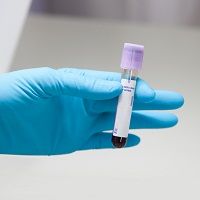Article
Blood Test Rules Out Rheumatoid Arthritis Medications that Won't Work
Author(s):
A blood test can identify which rheumatoid arthritis medications may not work for particular patients, saving time and money.

A blood test could prevent adversely affective medications for rheumatoid arthritis (RA) patients, according to findings presented at the American College of Rheumatology annual meeting in Boston.
Researchers from the Mayo Clinic first drew blood samples from RA patients before any medications were prescribed. Then, the patients were treated with anti inflammatory biologic drugs, tumor necrosis factor alpha inhibitors, which are a new class of RA drugs. Type 1 interferon made by the immune system proved to be a good biomarker to determine whether individual RA patients would respond well to biologics or if other medications should be tried instead.
“We are trying to personalize therapy for RA,” Timothy Niewold, MD, senior author of the study, explained in a press release. “One of the main problems rheumatologists have had is that it’s hard to choose the right drug for the right person. Each new drug works for some people and not others. It’s not trivial, because the disease causes damage in the joints and if it takes a year or 2 to find the right treatment, then damage can accrue. In the study, we looked at markers in the immune system that might help.”
Currently, methotrexate is often the first drug tried, followed by biologics if that doesn’t work. However, both of those drugs carry risk for infection and other risks, and patients should be tested for tuberculosis before beginning a methotrexate or biologics regimen. If methotrexate doesn’t work for a particular patient, it is often noted that the patient has more severe RA than others. The researchers note that getting RA under control is important not only in order to prevent the damage it causes but also to reduce the risk of other serious infections like heart disease. RA patients are twice as likely to develop heart disease than a person without RA.
The researchers have a large scale trial is underway and involves several institutions, Niewold mentioned. But, he noted that more research is needed before the blood test becomes a standard practice and its use widespread. The blood test can also be a medication guide to avoid adverse effects from biologics in cases of psoriatic arthritis, psoriasis, and inflammatory bowel disease, the researchers explained.
“The cost of the treatment is a major issue,” Niewold continued in a video interview. “The drugs have been used fairly commonly now in RA. This is an issue for insurance companies and healthcare payers because giving these medicines to a lot of people but having only some of them respond is not very efficient. You’d really like to use those healthcare dollars in the most efficient way possible.”
By avoiding drugs that don’t work for each patients, the researchers emphasized a healthcare savings from a cost perspective and of course less patient discomfort and wasted time.





